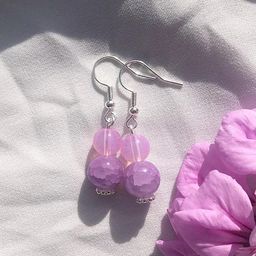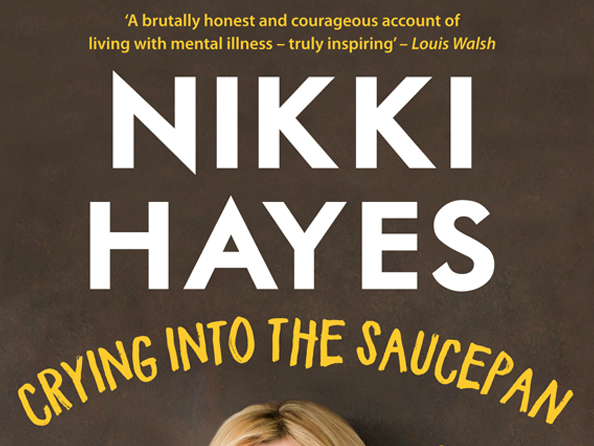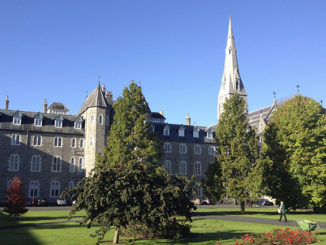
[dropcap]I[/dropcap]n the year where PJ days went from an occasional luxury to an ubiquitous habit, the fashion industry suffered like never before.
According to a report published by Business of Fashion website and the management consultancy firm McKinsey & Company, the industry is forecast to experience a 90 per cent fall in profits and a 15 to 30 per cent decline in sales in 2020 compared to the 12 months previous.
The Covid-19 pandemic has stopped the fast-paced world of fashion in its tracks and turned it on its head, bringing out both the best and worst of the industry and creating drastic shifts in consumer habits while doing so.
The new WFH way of life has come with the necessity of readily available, comfortable clothing, sending loungewear sales soaring. While luxury brands have pivoted in the direction of comfort and have created upmarket versions of loungewear (Danish designer label Ganni’s “software” collection, for example – the most enticing alternative to a tracksuit of all time), fast fashion brands ultimately still dominate the market, with Asos profits experiencing a 329 per cent increase from 2019 thanks to demands for casual clothing.
The popularisation of loungewear was not the fast fashion industry’s only victory because of the pandemic. The rise of TikTok and surges in screen time across the board resulted in much higher levels of content being created and consumed, including a multitude of hauls and try-ons from influencer’s favourite fast fashion brands. Tiktok has given these companies a direct point of communication to their Gen Z target audience and has elevated the social media marketing game.
Vast uptakes in online shopping have resulted in the explosion of companies such as Shein, who have thrived in their online business model.
Although Shein have made no comment on their 2020 sales, their chosen channel of distribution has eliminated any fears of closures faced by their department store counterparts, saving them from the same devastation experienced by retailers industry-wide and making the Chinese, fast fashion giant one of the most profitable businesses of the pandemic.
However, there are some silver linings among the gloomy clouds, and the pandemic has inspired some positive change in consumer habits. As much as the platform has been used to the advantage of fast fashion brands, TikTok has also become a space for fashion enthusiasts to share their upcycling tips, showcasing new and innovative ways to build a more sustainable wardrobe.
Second-hand fashion also boomed throughout the pandemic, with Depop’s turnover doubling globally since 1 April and Ebay selling 1211 per cent more preloved garments in June 2020 than June 2018, according to The Guardian.
The ethics of the fast fashion production were once again called into question at the beginning of the pandemic with the #PayUp campaign, a movement sparked by the negligence of textile factory workers at the hands of their fast fashion buyers, thus forcing consumers to be mindful of the origin of their purchases as they set out on their quarantine shopping sprees.
There has also been a massive uptake in the support of community businesses, with 80 per cent of Irish consumers now more likely to shop local compared to 2019, according to research conducted by Mastercard. Mastercard’s findings also highlighted a desire among consumers to give back to their communities, with 75 per cent of respondents preferring to buy from a familiar face.
One business that has benefited from this shift in consumer preference is RD Jewellery, a company selling handmade jewellery owned and run by DCU student, Rebecca Dodd.
Dodd, who is in second year of her joint honours degree in Geography and Human Development, started her business in April 2020. Originally selling her creations from an Instagram account and to people in her local area, Dodd’s business has since expanded with the launch of her website last week, enabling her to cater to her growing clientele across Ireland.
A product of the pandemic, RD Jewellery has grown in many ways thanks to it, with Dodd attributing some of her consumer engagement to increased screen time during lockdowns.
“I think the pandemic helped my business to grow a lot…I felt that people were actually interested in following what I was doing and interacting with my Instagram page because they had the time and probably spent more time on their phone,” Dodd told The College View.
“I actually found that when we were in lockdowns my sales were a good bit higher than when we weren’t in lockdowns and I think this could be due to people spending more money online and time online,” she added.
Although this year was her business’ first experience of the Christmas period, Dodd could feel a shift in consumer preference toward indigenous industry.
“There were definitely a great deal of people making a conscious effort to support local and small businesses around Christmas, which I felt significantly helped the growth of my business. Some Instagram accounts were suggesting small businesses to support so I got mentioned in a few of these and gained more exposure from it, so it was really great,” she said.
The pandemic has touched all aspects of life, with the fashion industry being no exception. It has stripped the industry back, exposed its ugliest parts and fostered its best. We cannot change the damage that has been done, but we can carry the good that has been created forward, and hope for a more sustainable, consumer-conscious and promising year of fashion ahead.
RD Jewellery is a small, handmade jewellery business based in Dublin. Each piece of jewellery bought is made by Rebecca, with a commitment to using locally and ethically sourced materials and recycled or recyclable packaging. To contact Rebecca or to shop RD Jewellery, visit www.rdjewellry.shop/ or follow @rdjewellry_ on Instagram
Sarah McGuinness
Image Credit: RD Jewellery



